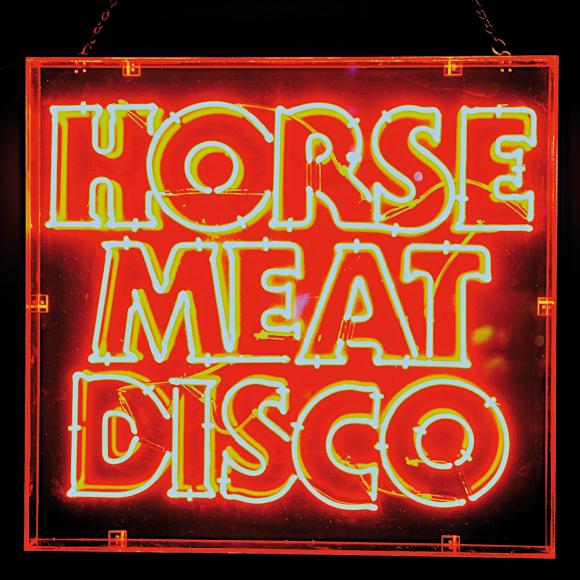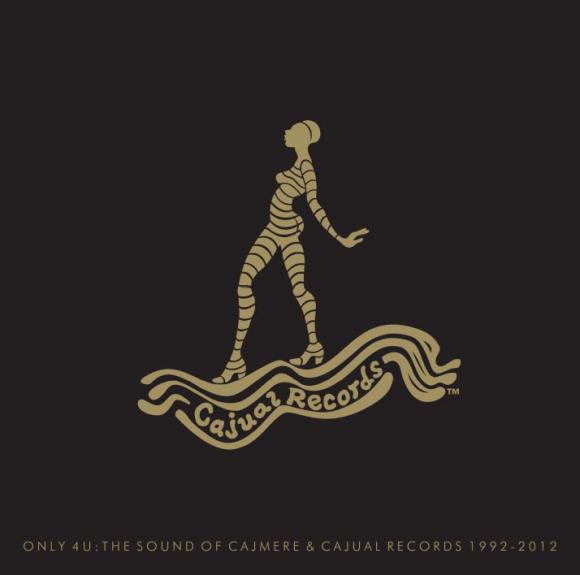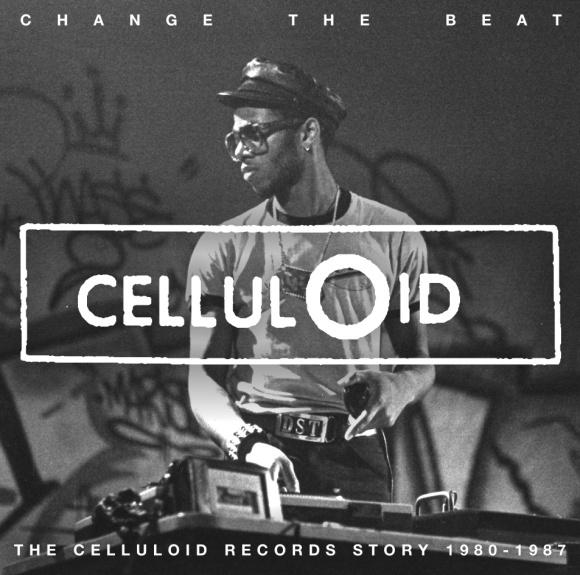Label Feature: Strut Records
- Date published
- 01-Jun-2013
In 1999 Quinton Scott set up his record company to document important times of dance music's history. Since then his releases cut no corners. And they are always featuring more then just rare dancefloor tracks. Each record also tells the story of the characters behind the sound, the clubs, and the scene of the time. All releases are featuring extensive sleevenotes, researched and written by respected journalists, rare photographs, and other hard to find memorabilia. Stylistically the release policy covers all styles from Funk, original breaks, Afrobeat, leftfield Disco, and Reggae to old skool Hip Hop, New Wave, Industrial, as well as long forgotten music library classics. So far Strut released records by Grandmaster Flash, Mulatu Astatke, Lafayette Afro Rock Band, Fela Anikulapo Kuti, or Tony Allen. Furthermore highly acclaimed samplers were compiled by celebrated DJs like Trevor Jackson, Danny Krivit, or Joey Negro. For Carhartt Radio Strut head honcho Quinton Scott mixed a show that covers the wide range of musical styles his label releases - from classics to soon to be released new material. To get hold of more then just the music we talked to him about his work, the labels history, his aims, passions, and musical guilty pleasures.

( Quinton Scott )
Where and how did Strut start? What was the impetus behind the start-up of the label?
Quinton Scott: I had previously set up a Dance, Soul, and Funk compilations label, Harmless, for Demon Music and saw that there was a really strong market for albums that documented some of the old clubs and scenes so I took the plunge and started Strut with some savings in 1999, working out of the Nuphonic label’s offices in Shoreditch, London.
What is your musical background?
Quinton Scott: I’ve always loved a lot of different styles but first got hooked on music during the early ‘80s as Electro and Boogie were coming in. I then started getting into breaks and older Funk, Soul, Jazz. And that was it - a slippery slope into addiction to the black stuff.
If you could describe the Strut sound in one sentence, what would you say?
Quinton Scott: That’s a tricky one because we release a lot of different types of music but there’s generally a dancefloor sensibility to most of what we do, whether it’s original Afro, Disco, Funk, or Post-Punk / Industrial.
What process do you follow for new re-releases or compilations?
Quinton Scott: Some projects are just timeless – you think of an idea for a compilation and you know that you could release it at any time and it would probably work well. For others, you know that the timing is right at a particular moment. In the early days, we would generate most of the ideas within the label team but projects can spring up in all manner of ways – books, conversations with music heads and collectors - several great ideas that have just come out of a chat in the pub. Because we’re now fairly established, we’re fortunate to get approached by a wide variety of people with great projects.
What exciting stuff do you have in the pipeline currently?
Quinton Scott: We have a great ‘80s Italian New Wave and early electronic project compiled by Kompakt duo Walls, Hugo Mendez from Sofrito has put together a jaw-dropping album of Haitian music from the ‘60s and ‘70s and we’re also continuing a few series – a new Metal Dance from Trevor Jackson and a fresh mix by Horse Meat Disco.

Do you have a "wish list" of albums you'd like to re-release on Strut? If so: which ones?
Quinton Scott: Yes, some are now surfacing elsewhere - we have tried to licence Eddy Grant’s leftfield work from him for over a decade but it looks like this will now come out on his own Ice label during 2014. On a personal level, I’d love to find Gino Soccio and do a proper collection of his work. A true Disco legend.
How important are the non-musical components of your releases, i.e. packaging and album art?
Quinton Scott: Yes, very important. We don’t go as mad as some labels on packaging with big box sets and gimmicks like coloured vinyl but great artwork, good sound and touches like 180g vinyl are important aspects of the label. Loads of info too – we always try and feature a high standard of writing and good photos and imagery.
Can you give some advice to someone who is interested in starting his or her own reissue label?
Quinton Scott: In the current climate, I’d start small. Try and be different from anything that’s already out there, know the market and what will work musically within it, licence everything officially, keep a high standard of artwork, packaging quality, and sound. Maybe start with limited editions and set pressing runs to cut down your risks and then build it from there.
How did you select the tracks for your Carhartt Radio show?
Quinton Scott: I wanted to include a good cross-section of the kind of music we release without jumping styles too abruptly so hopefully the mix flows but still takes you into different areas. There’s everything from South African Hammond trios to Factory Records classics in there.

If you could be in any band, living or dead, for a day which band would it be?
Quinton Scott: Probably Herbie Hancock’s band on his Future Shock tour in ’83 with Grandmixer D.ST, Bill Laswell, Daniel Ponce, all of those legends and those amazing kicking robot legs hung across the stage. With my limited musical skills, Herbie would probably have ordered me to the back of the stage to play the triangle.
What old albums you rediscovered lately and what makes them special?
Quinton Scott: Coming from a Soul and Dance perspective, I’ve often missed out on some important Rock and Punk albums. I recently bought some early Stooges LPs The Stooges and Raw Power after hearing a track on the radio. Pure unfettered Iggy energy tearing out of the speakers.
What records from the past coined your live?
Quinton Scott: These are good questions! Just picking a few at random - Timezone’s Wildstyle at school, Howard Jones’ Hide And Seek during my first break-up (rubbish, I know, but it made sense at the time!), Wganda Kenya Shakalaode when I launched the label and Roots Manuva Witness Dub at my wedding last September.
What is the most obscure record you have in your collection and why?
Quinton Scott: I have a few acetates of unreleased albums that I have kindly been given through working with different artists – an unreleased Mal Waldron Funk / Fusion album from Pierre Jaubert, producer of Lafayette Afro Rock Band, is probably the best of them.

What was your dream job as a child?
Quinton Scott: It was a job in music from quite an early age. At school, I was put off going into working in radio by a short-sighted teacher and started out in hotel and catering management. I was changing a bed as part of the training one day and suddenly thought, ‘NO!’
What’s your life motto?
Quinton Scott: To try and grab life with both hands and drinking in every experience from big events to simple pleasures.
Is there a gift of nature which you would like to have?
Quinton Scott: A photographic memory. I am really absent-minded.
If you didn’t do what you do for living, what would you do?
Quinton Scott: I’d still do something creative and probably for a small company. As a Dad, I’ve always thought that there’s a need for an online listings guide for kids’ events and activities in London and around the UK so, it might be something along those lines.
What’s the best thing about your job?
Quinton Scott: There’s a lot of hard work and frustration but it’s the best job in the world, it really is. I just love the process of starting out with a seed of an idea and translating that into a fully formed album release. It’s a complete privilege to make available amazing music which may otherwise have been lost in the archives.

What’s the worst thing about your job?
Quinton Scott: Deadlines! We’re now part of a much bigger operation with !K7 Records and meeting deadlines is always crucial for album campaigns to run smoothly. With licensing and working with artists, it’s often like walking through treacle – things slip, problems come in from different angles and, before you know it, you’re LATE.
Any musical guilty pleasures?
Quinton Scott: Loads, to be honest – I used to DJ weddings while I was a student and have always loved a good pop song. I heard Joe Jackson Steppin’ Out for the first time in ages the other day – what a brilliant track that is.
Your favorite heroes/ heroines in fiction?
Quinton Scott: It tends to be people succeeding against the odds. Howard Roark in Ayn Rand’s The Fountainhead and Kowalski in Vanishing Point are two that come to mind.
Your favorite heroes / heroines in real life?
Quinton Scott: My late Dad was an amazing man and always gave me great advice at important times in my life. Otherwise, randomly, I’d say the cricket commentator Richie Benaud, the greatest sports commentator I’ve heard in my lifetime.
What can music which all other art forms can not?
Quinton Scott: It’s a cliché but it can truly touch your soul and bring people together in a unique way. A great club night or memorable gig are unbeatable experiences and, predictably, I’m a huge champion of the VINYL. The artwork! The warm sound of the grooves! The smell! You’re not going to get that from a clumpy old VHS.
You are located in London. What are your favorite spots and secrets in your hometown that you would recommend to somebody that comes around for a visit?
Quinton Scott: To pick a few, there’s a great South Indian restaurant near Tooting Broadway station called Dosa ‘n’ Chutny – delicious, simple and cheap; Martin Morales’ Ceviche restaurant in Frith Street; Soul Jazz in Broadwick Street, still the don record shop; Monmouth Coffee in Borough Market for a very good cuppa; Café Oto in Hackney – London’s best small gig venue which always has really interesting programming.


